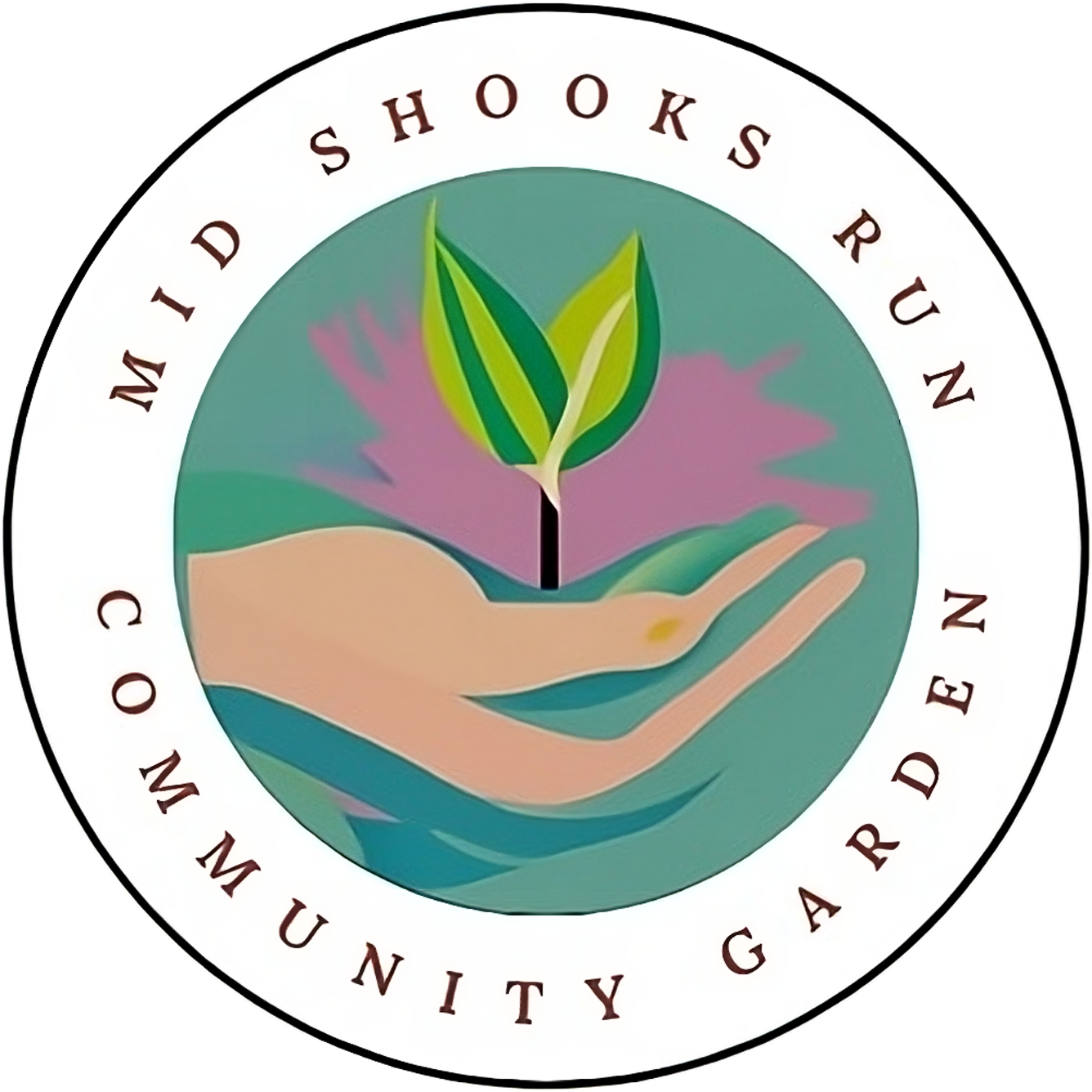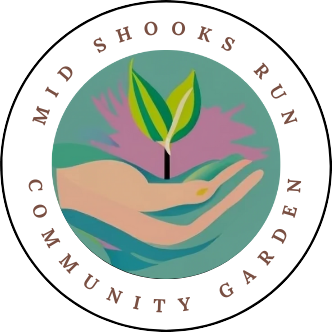Mid-Summer Magic: July Gardening
June Recap



















In June, Mid Shooks Run Community Garden focused on planting summer crops such as tomatoes, peppers, squash, and cucumbers. Members came together to break bread and to maintain the garden beds. Additionally, a successful fundraising event supported the garden's ongoing maintenance and future projects. Overall, June was a productive month at the community garden, with a strong sense of collaboration and shared purpose among participants!
July Events At A Glance
Garden Potluck Celebration
Saturday July 13th, 5:00 PM - 7:30 PM
Summerfest 2024
Saturday July 20th, 11:00 AM - 3:00 PM
Monthly Maintenance
Saturday, July 27th, 10 AM - 1 PM
Ready for Harvest at the Perennial Beds







At Mid Shooks Run Community Garden, you can find an abundance of vibrant blooms and foliage that thrive year after year. Here’s what you’ll find ready to harvest in July in our perennial beds:
A variety of flowers. These hardy perennials provide a colorful display while attracting beneficial pollinators to the garden.
Herbs like thyme, marjoram, lavender, lemon balm, tarragon, and sage are flourishing, ready to be harvested for culinary and aromatic purposes. Check out plot DD, which community gardeners can help themselves to!
Lemon cucumbers. You'll know it's time to harvest when they’re about the size of a lemon and turn from green to yellow. Don't let them turn a deep yellow or they'll be overripe and have a bitter taste.
Mexican sour gherkins (AKA cucamelons). These super adorable fruits look like mini watermelons! Harvest when they are about the size of a large grape but still firm to touch by twisting or cutting the fruits from the vine. Be careful not to damage the plants!
Strawberries. You’ll find them in the northern end of the perennial beds in the corrugated metal raised bed.
Raspberries. There are several raspberry patches along the south and west sides of the perennial beds.
Gooseberries. There are green and red gooseberry varieties at the community garden. A very underrated summer treat, they are a tart fruit, ideal for crumbles, tarts, jams, and cakes. To determine whether a gooseberry is ripe, gently squeeze it between your fingers. If it is soft, it’s ready!
Walking Onions. Walking onions can be harvested throughout the season. In July, the bulbets make a great shallot substitute.
Cherries. Hold the cherry and gently pull the fruit. If it is ripe, it will come off easily in your hand with the stem still attached. If it doesn’t pull away easily, leave this cherry to ripen for a bit longer. Cherries will not ripen once picked from the tree, so be patient!
Garden Weeding Challenge (AKA The Bucket Challenge)
A new challenge has come to the community garden! Here are the rules:
Grab a bucket from the greenhouse and fill it with weeds from the community garden’s footprint (outside the fence counts too).
Fill a bucket, put a sticker under your name on the greenhouse tracking board.
On Labor Day (September 2nd), the name with the most stickers will win a prize!
Feel free to weed the pathways, the perennial beds, and the area between our fence and the sidewalk. NEVER weed inside a community gardener’s plot. Sometimes it’s hard to distinguish between weeds and intentional plants, so let the gardener decide what stays and what goes.
Empty buckets in the trash, not the compost. Our compost is full, is attracting wasps, and your bucket may contain bindweed, a highly invasive species. There are two trash receptacles to use: one right outside the community garden entrance and one in the Sustainacenter parking lot. If you’re filling many buckets, there are contractor bags in the greenhouse.
Happy weeding!
Other Announcements
New office hours - Office hours at Mid Shooks Run Community Garden have transitioned from Fridays to by appointment only. We are in the midst of the gardening season and members of our guidance team can typically be located at the community garden. For appointments or inquiries, please reach out to us directly to connect.
Pop-up nursery is closed for 2024 - Thank you to everyone who supported the community garden by donating and purchasing starts.
Safety First - The presence of various species like dragonflies, ladybugs, butterflies, caterpillars, honey bees, mason bees, garden spiders, and wasps indicates a healthy garden. However, it is essential to remember that wildlife is wild and can pose potential risks - treat it with caution and respect. Keep a safe distance from any venomous species you see, especially from wasp colonies or other species that may cause harm / species you’re unfamiliar with.





